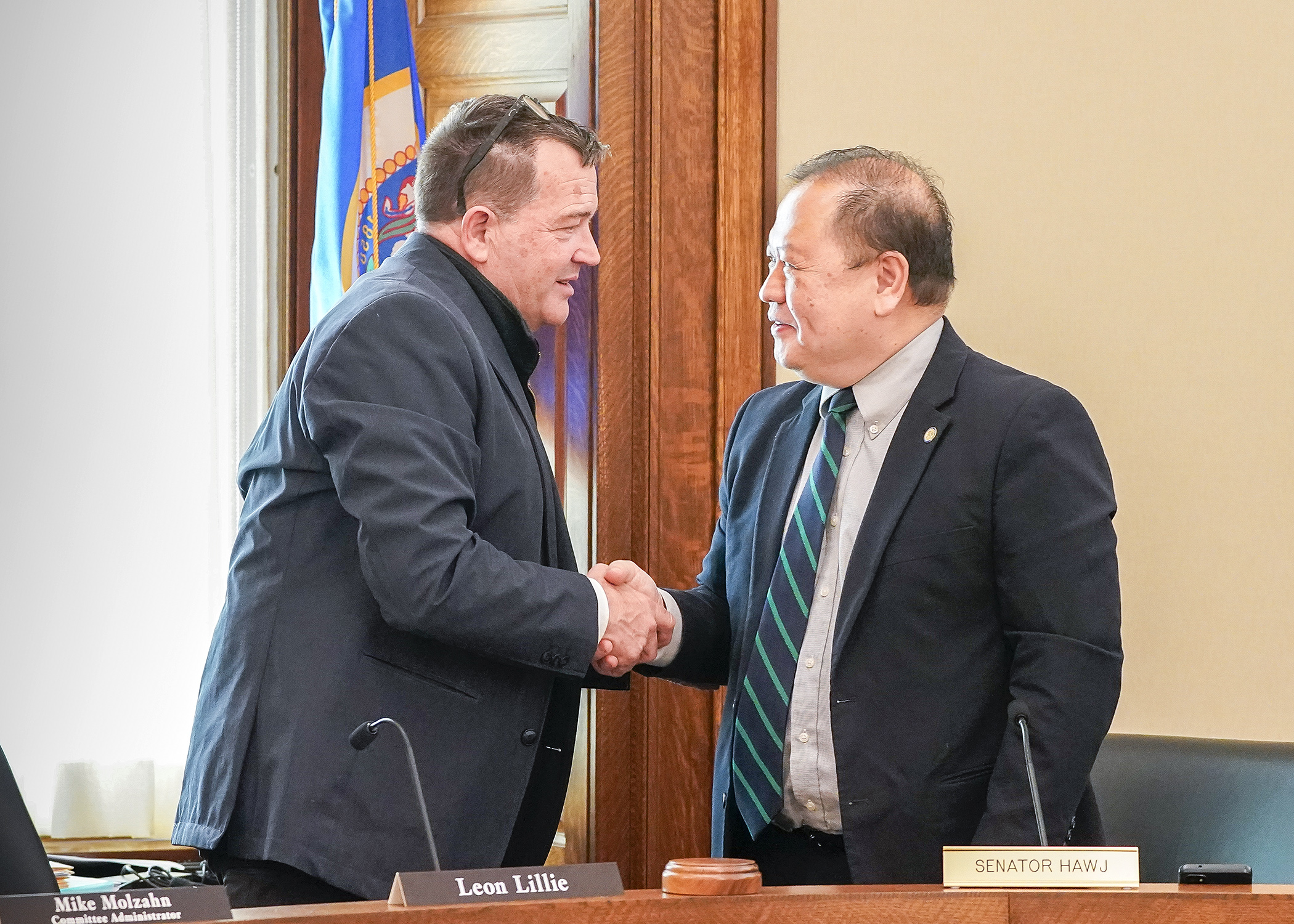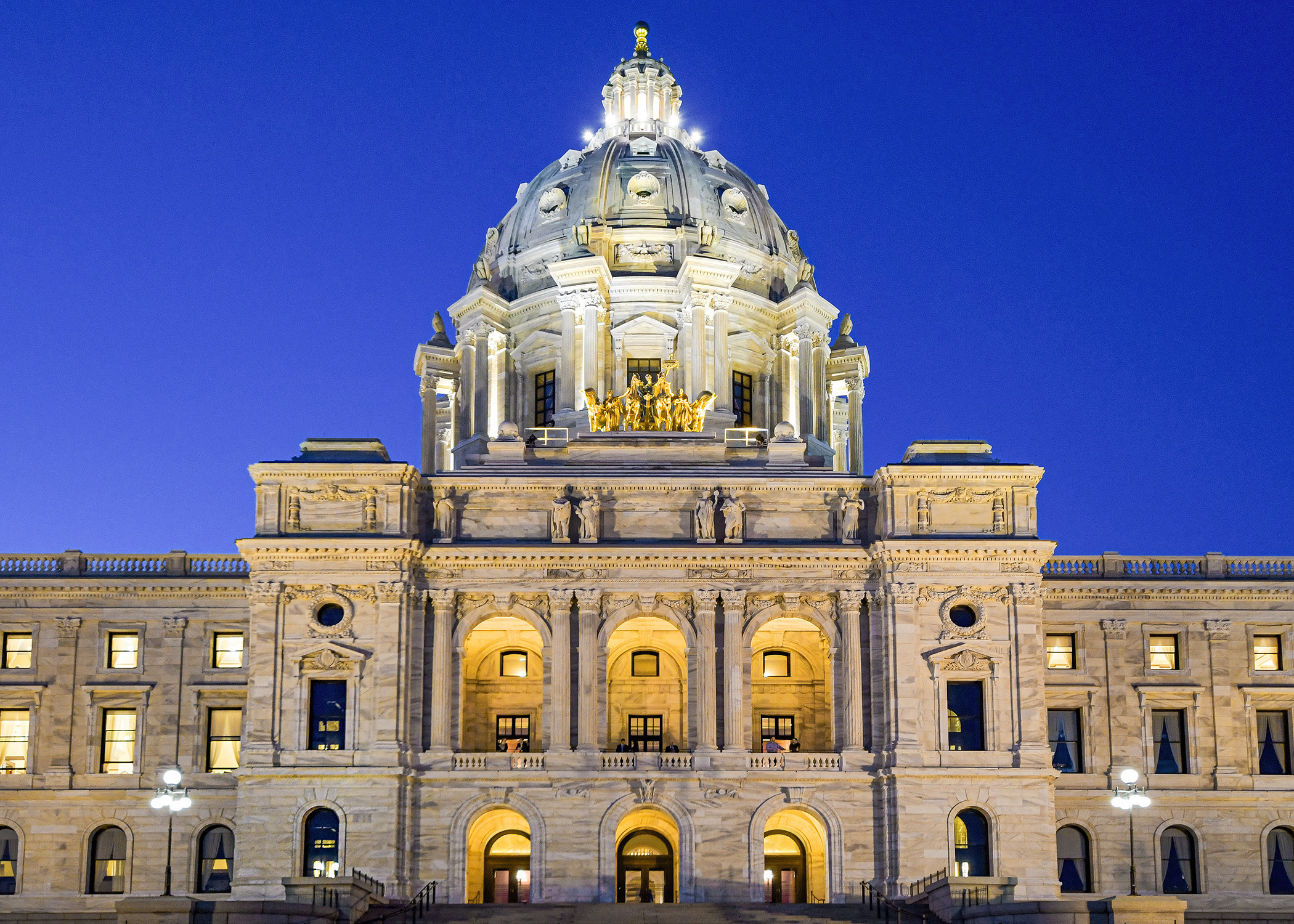House, Senate reach agreement on Legacy budget that includes Hmong cultural preservation

Lt. Tong Vang. Capt. Xia Nou. Lt. Neng Xiong. Capt. Ganghis Khang.
Wanting to honor otherwise unrecognized veterans from the secret war in Laos, Rep. Ethan Cha (DFL-Woodbury) asked these four soldiers who are ineligible for veterans benefits to stand at a Friday conference committee.
As one of nine Hmong legislators, he is proud to have some of the suggested Legacy funding go toward protecting the history of his community, including $600,000 for Hmong cultural preservation, $450,000 for the Hmong plaza friendship garden, and $300,000 for the Hmong Cultural Center of Minnesota.
All are in the Legacy conference committee agreement to HF1999 that was approved via a voice vote. Rep. Leon Lillie (DFL-North St. Paul) and Sen. Foung Hawj (DFL-St. Paul) are the sponsors.
[MORE: View the agreement spreadsheet and side-by-side language]
Through a 2008 ballot initiative, voters ratified the Legacy amendment, which divides a 0.375% sales tax increase four ways: 33% to the Clean Water Fund; 33% to the Outdoor Heritage Fund; 19.75% to the Arts and Cultural Heritage Fund; and 14.25% to the Parks and Trails Fund.
Of the $818.75 million worth of spending in the omnibus package, two appropriations remain the same: $318.4 million to the Clean Water Fund and $171.79 million would go to the Outdoor Heritage Fund.
The House accepted the Senate’s budget for the Arts and Cultural Heritage Fund of $191.95 million, and the Senate agreed to the House’s $136.61 million plan for the Parks and Trails Fund.
Overall, all House articles were adopted apart from some minor modifications. One such tweak includes the House matching the Senate’s $72.17 million to the State Arts Board for arts and art access initiatives, while dropping the House idea of $100,000 for free access days.
The State Arts Board would receive an additional $20.04 million for arts education, arts and cultural heritage and significant public art installations. The latter was a House-only provision.
Moreover, the House initially wanted to split children’s museum grants between those with an operating budget over and under $2 million. It is now a single grant program seeking to spend $2.2 million, a lower appropriation than either body proposed previously.
Additionally, the Minnesota Children’s Museum in St. Paul would receive $1 million, but other children’s museums the Senate had direct appropriations for would have to, instead, participate to the competitive grant process.
A provision to require a financial review of nonprofit grant recipients was dropped from both sides’ initial offer.
Not everyone was happy with the bill or the process, namely Rep. Jeff Backer (R-Browns Valley). “We’re spending public dollars. We had no public hearings. … We didn’t see the language beforehand.”
Lillie said while some conference committees devote time to public testimony, many don’t and a lot of it is done behind the scenes.
Sen. Karin Housley (R-Stillwater) seconded Backer’s other concern about approving something via an agreement sheet, not official bill language. The updated version of the language is not yet available and is expected to be finalized next week.
Related Articles
Search Session Daily
Advanced Search OptionsPriority Dailies
House closes 2024 session in chaotic fashion, trading bonding for budget boosts
By Rob Hubbard It was a session of modest ambitions.
After 2023 produced a record $72 billion in biennial funding, Minnesota’s legislative leaders were dampening expectations for anything ...
It was a session of modest ambitions.
After 2023 produced a record $72 billion in biennial funding, Minnesota’s legislative leaders were dampening expectations for anything ...
Ways and Means Committee OKs proposed $512 million supplemental budget on party-line vote
By Mike Cook Meeting more needs or fiscal irresponsibility is one way to sum up the differences among the two parties on a supplemental spending package a year after a $72 billion state budg...
Meeting more needs or fiscal irresponsibility is one way to sum up the differences among the two parties on a supplemental spending package a year after a $72 billion state budg...